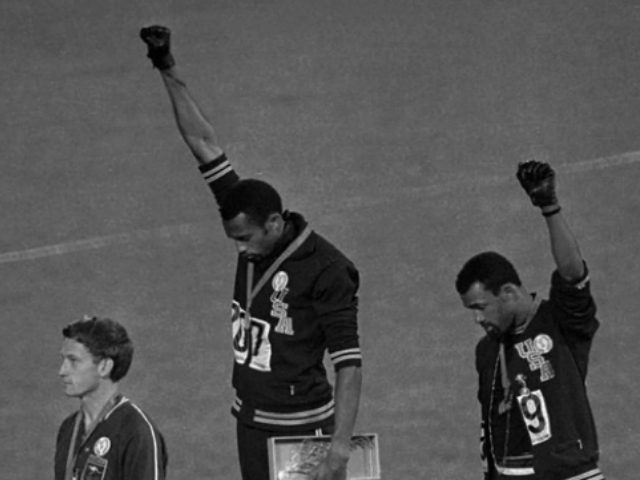After 51 years, the U.S. Olympic and Paralympic Committee (USOPC) is honoring Tommie Smith and John Carlos, the two Olympians who protested against the United States during the 1968 Sumer Olympics. But the honor comes on the heels of recent sanctions against several athletes who also protested only just this year.
The USOPC Hall of Fame’s latest induction class will include Smith and Carlos during a November 1 ceremony in Colorado Springs, Colorado, according to the Washington Post.
The pair of sprinters made world news when they protested against the U.S. by raising a militant black power fist in the air on the medal stand after receiving their medals. The protest was a planned affair, not a spur of the moment decision, because the two shed their shoes and wore black gloves to highlight “oppression, poverty, and pride.”
The actions immediately sparked controversy with most voices in and out of the Olympics condemning the protests. Eventually, the USPOC apologized to Mexico, the 1968 host nation, and condemned the Olympians for their actions. However, fearing a widespread backlash among athletes, neither was suspended. Both runners, though, were also expelled from the games and sent home with the threat that if they did not leave, the whole U.S. delegation would be eliminated from the games.
However, 51 years later, all is forgiven, and the two runners are being honored as inductees into the USA Track and Field Hall of Fame.
The honor, though, comes on the heels of sanctions leveled against two other Olympians for protesting against the U.S. during this year’s games.
In August, Olympic fencer Race Imboden and hammer-thrower Gwen Berry were both sanctioned with a one-year probation for protesting on the medal stand during the Pan American Games in Lima, Peru, NBC News reported.
Imboden took a knee during the national anthem at the men’s foil team medal ceremony, while Berry raised a fist during the national anthem at the women’s hammer throw award ceremony.
On top of the probations, the USOPC also warned that penalties could be worse for other athletes protesting in future games, including next summer’s Olympics in Tokyo, Japan.
Still, the contrast is jarring between celebrating Olympics protesters from 1968 even as Olympics officials sanction today’s protesters.
Follow Warner Todd Huston on Twitter @warnerthuston.

COMMENTS
Please let us know if you're having issues with commenting.